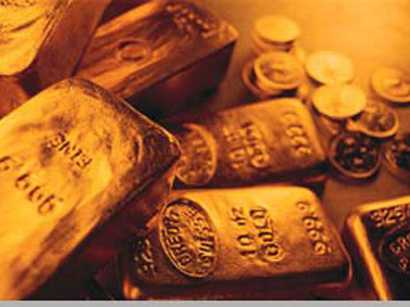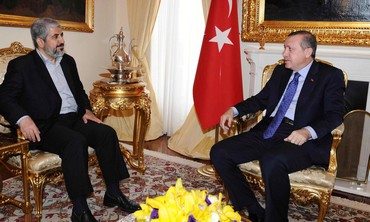By Asli Kandemir
ISTANBUL | Sat Feb 16, 2013 4:12am EST
(Reuters) – Tighter U.S. sanctions are killing off Turkey’s gold-for-gas trade with Iran and have stopped state-owned lender Halkbank from processing other nations’ energy payments to the OPEC oil producer, bankers said on Friday.
U.S. officials have sought to prevent Turkish gold exports, which indirectly pay Iran for its natural gas, from providing a financial lifeline to Tehran, largely frozen out of the global banking system by Western sanctions over its nuclear program.
Turkey, Iran’s biggest natural gas customer, has been paying Iran for its imports with Turkish lira, because sanctions prevent it from paying in dollars or euros.
Iranians then use those lira, held in Halkbank accounts, to buy gold in Turkey, and couriers carry bullion worth millions of dollars in hand luggage to Dubai, where it can be sold for foreign currency or shipped to Iran.
Halkbank had also been processing a portion of India’s payments for Iranian oil.
A provision of U.S. sanctions, made law last summer and implemented from February 6, effectively tightens control on sales of precious metals to Iran and prevents Halkbank from processing oil payments by other countries back to Tehran, bankers said.
“Halkbank can only accept payments for Turkish oil and gas purchases and Iran is only allowed to buy food, medicine and industrial products with that money,” one senior Turkish banker told Reuters.
“The gas for gold trade is very difficult after the second round of sanctions. Iranians cannot just withdraw the cash and buy whatever they want. They have to prove what they are buying … so gold exports will definitely fall,” he said.
Trade in Turkish gold bars to Iran via Dubai was already drying up as banks and dealers declined to buy the bullion to avoid sanctions risks associated with the trade.
Reuters first reported the boom in Turkish gold sales to Iran via Dubai last year.
Turkish Economy Minister Zafer Cağlayan signaled a decline in the trade last week when he said that, while Turkey would not be swayed by U.S. pressure to halt gold exports to Iran, Tehran’s demand for the metal was expected to fall.
“You could say that the United States has achieved its aim,” said a western diplomat. “If Turkey is going to continue energy imports from Iran, there is no other way to go than trading sanction-free goods.”
NEW ROUTES?
Iran is refining uranium to a fissile concentration that Western experts say is a relatively short technical step from the level that would be suitable for atomic bombs. But Tehran says its enrichment program is solely for civilian energy purposes.
Turkish ministers had acknowledged the “gold-for-gas” trade but said it was carried out entirely by the private sector and was not subject to U.S. sanctions.
Turkey, like China, India and Japan, is heavily dependent on imported energy and, while it has cut back on oil from Iran, has made clear it cannot simply stop buying Iranian oil and gas.
“With so many restrictions, Iran’s cash may accumulate in Halkbank accounts… they may have difficulty getting some of that money out of Turkey,” another senior Turkish banker said.
That could mean Tehran will look elsewhere for allies willing to try to get round the U.S. sanctions, although it may struggle to continue to receive gold as a payment method.
“The gold trade may switch to countries that support Iran politically but Russian banks, for example, would be very cautious because they are very much in the global banking system,” the second banker said.
“China may be another option. But I can say that the gold trade is over for Turkey.”
Turkey, which is not a major gold producer, was a net gold, jewelry and precious metals importer in 2011 but swung to being a net exporter last year. Analysts said Iranian demand had prompted both the high imports two years ago – which were largely sold on to Iran – and the surge in exports last year.
Gold exports to Iran rose to $6.5 billion in 2012, more than ten times the level of 2011, while exports to the United Arab Emirates – much of it for onward shipment to Iran or conversion to hard currency – rose to $4.6 billion from $280 million.
Overall Turkish bullion exports fell to 10.5 tonnes in December from 15.2 tonnes in November.
(Editing by Nick Tattersall and Richard Mably/Mark Heinrich)
(This story was corrected in the 13th paragraph to show Iran not accused of making weapons-grade uranium)
via Exclusive: Turkey-Iran gold trade wiped out by new U.S. sanctions | Reuters.






